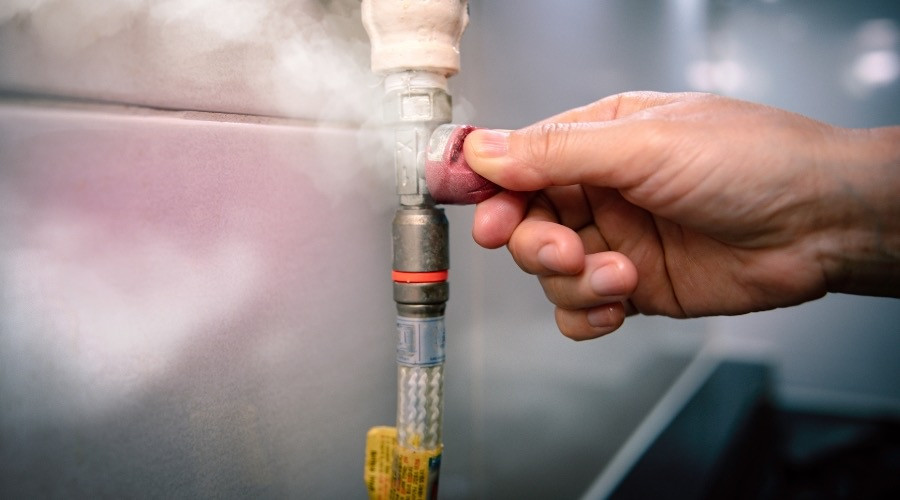How to Identify and Respond to Dangerous Gas Leaks
Concerns over natural gas exposure are valid, as even minor gas leaks can escalate into major emergencies, so gas leak detection services are invaluable. Early action, awareness of warning signs, and proper intervention methods can prevent severe outcomes. This guide provides detection tips and proven response strategies designed to reduce hazards and ensure safety.
Dangers of a Gas Leak
Natural gas poses hidden dangers that extend far beyond the common rotten egg smell. Carbon monoxide exposure from faulty gas appliances sends between 50,000 and 10,000 individuals to emergency rooms annually, according to the CDC. When a gas leak occurs, toxic fumes can accumulate indoors rapidly, creating immediate health threats.
Initial gas leak symptoms may include dizziness, fatigue, and severe headaches, which worsen with continued exposure. Children and older people are often the first to exhibit signs, as they tend to have faster oxygen displacement in confined spaces. In severe cases, prolonged exposure may result in unconsciousness, permanent brain damage, or even death.
Beyond health concerns, gas leak incidents pose significant risks of fire and explosion. The accumulation of natural gas transforms an enclosed space into a volatile environment. A single spark from a light switch, pilot light, or even static electricity can ignite the gas, causing explosions that can destroy homes within seconds. The National Fire Protection Association estimates that gas-related accidents result in approximately $402 million in property damage each year. Even minor leaks near electrical outlets or ignition sources can produce disastrous consequences.
Routine inspection of appliances and gas lines helps mitigate these risks. Taking proactive steps reduces the likelihood of undetected leaks, protecting lives and property from catastrophic events.
Signs of a Gas Leak
 Recognizing the signs of a gas leak is critical to preventing injury or property loss. The most common and immediate warning is the strong sulfur-like odor introduced by mercaptan, a chemical added to otherwise odorless natural gas. This distinctive smell serves as an early indicator of danger.
Recognizing the signs of a gas leak is critical to preventing injury or property loss. The most common and immediate warning is the strong sulfur-like odor introduced by mercaptan, a chemical added to otherwise odorless natural gas. This distinctive smell serves as an early indicator of danger.
Other key gas leak symptoms include hissing or whistling sounds near gas lines, appliances, or outdoor meters, all signals that pressurized gas is escaping even when equipment is inactive. Outdoors, dead or discolored vegetation along the path of a gas line may indicate an underground leak that requires urgent attention.
Inside the home, changes in plant health can provide additional warning signs. Wilting or dying houseplants, especially when the decline is rapid and unexplained, may indicate a gas leak. Gas exposure interferes with plant metabolism, causing yellowing leaves and premature leaf drop.
Being aware of these indicators supports early intervention and reduces the chances of serious damage or health issues.
Responding to a Gas Leak
 In the event of a suspected gas leak, immediate evacuation is essential. Every moment counts, as natural gas leaks escalate quickly and can lead to combustion or poisoning. All occupants should exit the property immediately without attempting to investigate the source.
In the event of a suspected gas leak, immediate evacuation is essential. Every moment counts, as natural gas leaks escalate quickly and can lead to combustion or poisoning. All occupants should exit the property immediately without attempting to investigate the source.
Evacuation procedures must avoid triggering the ignition. Light switches, electronic devices, matches, and flashlights should not be used, as even a minor spark may ignite concentrated natural gas. Once a safe distance has been reached, the utility provider should be contacted to request emergency shutoff service.
After the gas line has been secured, certified professionals must conduct an inspection and perform any necessary gas line repairs and gas leak repairs. Reentry into the home should only occur once technicians confirm that the area is safe.
Following proper protocols during a gas leak situation can prevent property loss and save lives. Because natural gas is lighter than air and tends to rise, upper floors are often particularly hazardous during leak events. Awareness, fast response, and reliance on qualified gas line repair specialists are crucial for safety and prevention.
About Maxwell-White Plumbing
Maxwell-White Plumbing is a prompt and professional plumbing company serving the communities of West Salem and the surrounding areas of La Crosse County. With straightforward pricing and trusted technicians using the latest technology, customer satisfaction is guaranteed. Contact them today for gas leak detection in West Salem, WI.




